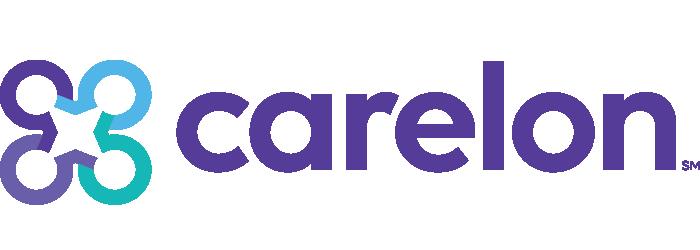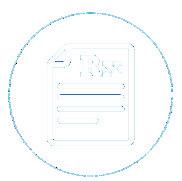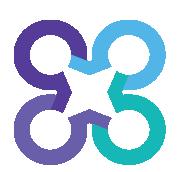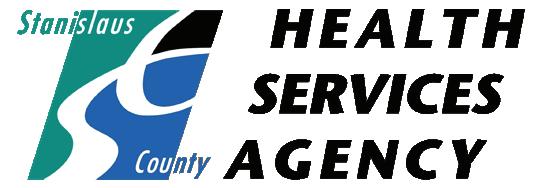DO WE HAVE YOUR CORRECT INFORMATION?
According to California Health & Safety Code 1367.27, it is a regulatory requirement that provider data be validated every six (6) months or as often as changes occur. Failure to comply with validating data with the health plan will result in your data being temporarily removed from the HPSJ directory until it is resolved. This could also result in a delay of payment or reimbursement of claims. Avoid payment delays or being removed from the provider directory by taking action right away.
Report changes using the template provided on our website: www.hpsj.com/forms-documents
The Provider Services department is available to answer questions and assist you. We look forward to collaborating with you on this effort. If you have questions, please call our Provider Services Department at 209.942.6340 Monday through Friday, 8AM – 5PM.

Winter 2023 In this issue: ACE Screenings Notifications of Positive TB Tests Grievances and Appeals 2 4 5 7 NEW Preventive Health Guidelines
your
Check listing now
Check
directory listing.
Public Health notifies HPSJ's Case Management team when one of your HPSJ patients tests positive for tuberculosis (TB). HPSJ will notify Primary Care Providers by sending a letter via mail.

If the patient is non-adherent with your TB treatment regimen, notify the Public Health Department for implementation of Directly Observed Therapy. County public health contacts are listed below:


If you have any questions about this process, please call HPSJ’s Case Management team at 209.942.6352.
COVID-19: Available Therapy and Treatments

The COVID-19 pandemic is still evolving, as is the case with COVID-19 therapeutics. Several outpatient therapeutic options are now available. Effective treatment for patients with mild-tomoderate COVID-19 should be offered to all high-risk patients if they meet criteria for treatment based on FDA-issued Emergency Use Authorizations (EUAs).
Treatments are available for eligible patients based on exposure status, symptoms, and risk factors. A test-to-treat approach is essential to prevent illness and help people recover from COVID-19. Most COVID-19 therapeutics are still under Emergency Use Authorization (EUA). Providers should review product EUAs as well as the NIH Treatment Guidelines prior to using outpatient therapeutics.
The products currently authorized for treating mild-to-moderately ill COVID-19 patients include: Paxlovid, Lagevrio, and Veklury. For pre-exposure prophylaxis, Evusheld is an available option. As the federal government provides these medications to states for free, and they are not in shortage, members should have access to these medications through network providers.
Visit HPSJ’s COVID-19 provider page for a listing of in-network providers who offer test-to-treat services, infusion services of COVID-19 medications, and COVID-19 resources.
209.468.3830 | phs-info@sjcphs.org 209.558.7000 | www.schsa.org/publichealth
Have you referred a Patient to Public Health for TB Testing?
2
Have you heard the news? Beacon Health Options – Now Carelon
Beacon Health Options has announced that their name will change to Carelon Behavioral Health effective March 1, 2023.


HPSJ is working with Carelon to ensure that materials and website references are updated. Please communicate this change with your office staff and HPSJ patients as needed.
Medi-Cal Rx Formulary and HPSJ’s Medical Benefit Resources
HPSJ’s pharmacy benefit is administered by Medi-Cal Rx. Medications that are prescribed and dispensed by a retail or specialty pharmacy fall within the pharmacy benefit and are subject to any restrictions (e.g. Code 1 restrictions, Prior Authorization required, age limit) that Medi-Cal Rx might impose on them.


Medi-Cal Plan Updates
Last month, DHCS released Medi-Cal Bulletin #583. Within the bulletin, #7 listed details regarding the Medi-Cal Provider Portal.
Beginning in March 2023, all providers must use the new Medi-Cal Provider Portal in order to become an authorized Medi-Cal submitter.
▪ A token is required to register an organization in the portal.

▪ Registration tokens were previously sent to providers’ pay-to-addresses and will be sent to submitters in March 2023.
Online Drug
Lookup Tool
HPSJ Medical Benefit Updates
Covered Product Lists
HPSJ Provider Manual
HPSJ has full coverage policies available as a reference for determining if a medication is on the pharmacy benefit, medical benefit, or both (www.hpsj.com/medication-coverage-policies).
▪ Submitters are advised to verify the address on file with Medi-Cal to ensure registration tokens will be sent to the correct address.
▪ To change an incorrect address, fax a request to the Telephone Service Center on company letterhead to 1.916.617.4041
For more information, the Medi-Cal Provider Portal Overview webpage hosts helpful resources, such as Frequently Asked Questions and User Guides.
Note: The Provider Portal does not apply to pharmacy providers.
forward, visit
Going
www.carelon.com
!
Read full bulletin here for additional updates from DHCS 3
Improve the Health and Wellbeing of Your Patients – Screen for ACEs
A message from Dr. Lakshmi Dhanvanthari, HPSJ's Chief Medical Officer

Adverse Childhood Experiences (ACEs) are potentially traumatic events that occur when we are young. ACEs affects all communities and cross racial, ethnic, socioeconomic, gender and geographic lines. By screening for ACEs to assess the risk of toxic stress and effectively responding with evidence based, trauma informed care across sectors, we can significantly improve the health and well-being of individuals and families. The purpose of a complete ACE screening is to rapidly identify which patients are at highest risk for toxic stress and perform the next steps of a more complete, individualized assessment for each of them.
Once the risk has been assessed, a treatment strategy consisting of education can help patients recognize and respond to the role that past or present stressors may be playing on their current health conditions. Addressing toxic stress physiology is a core component of treating ACE-Associated health conditions. HPSJ encourages all our network providers to become certified to deliver ACEs screenings for their new patients or during well visits to identify members that have had adverse experiences and refer them to Behavioral Health counseling when needed.
Qualifying ACE screenings are eligible for payment in any clinical setting in which billing occurs through MediCal fee-for-service or to a network provider of a MediCal managed care plan. Federally Qualified Health Centers (FQHCs), Rural Health Clinics (RHCs), Cost-Based Reimbursement Clinic (CBRCs), and Indian Health Services (IHS) are also eligible for the $29 payment.
Medi-Cal providers are eligible for a $29 payment for conducting ACE screenings for child and adult patients with full-scope Medi-Cal. Payment is not available for patients aged 65 and older or for those who are dually eligible for Medi-Cal and Medicare Part B (regardless of enrollment in Medicare Part A or Part D).


Medi-Cal payment is available for ACE screenings based on the following schedule:
Children and adolescents under age 21: Permitted for periodic ACE re-screening as determined appropriate and medically necessary, not more than once per year, per clinician (per managed care plan). Children should be screened periodically to monitor the possible accumulation of ACEs and increased risk for a toxic stress physiology.
Adults aged 21 through age 64: Permitted once in their adult lifetime (through age 64), per clinician (per managed care plan). Screenings completed while the person is under age 21 do not count toward the one screening allowed in their adult lifetime. Adults should be screened at least once in adulthood—and though ACEs occur in childhood (by definition) and therefore do not change, patient comfort with disclosure may change over time, so rescreening for adults may be considered.
4
• Supports health promotion and prevention of illness.
• Helps clinical teams and patients form stronger therapeutic relationships.
• Improves clinical decision-making and treatment of serious and difficult-to-treat health conditions.
• Promotes an intergenerational cycle of health by reducing the transmission of ACEs and toxic stress.
The Becoming ACEs Aware in California Training is a free, two-hour training. You may receive 2.0 Continuing Medical Education (CME) and 2.0 Maintenance of Certification (MOC) credits upon completion.

The training is available to any provider, but it is particularly geared towards primary care clinicians who serve Medi-Cal (California’s Medicaid program) beneficiaries.
Medi-Cal providers must attest to completing a certified core ACE training on the DHCS website to continue receiving payment for ACE screenings.
Learn more about the ACEs Aware initiative at www.ACEsAware.org
NEW Preventive Health Guidelines
HPSJ covers preventive services recommended by three different national organizations: (1) the U.S. Preventive Services Task Force (USPSTF); (2) the Advisory Committee on Immunization Practices (ACIP); and (3) the Bright Futures/ American Academy of Pediatrics (AAP).



The updated Preventive Health Guidelines are a comprehensive review of the preventive services for children and adults. Find them here or request copies for your office by emailing healtheducation@hpsj.com.
See more of this guide and our adult preventive health guide by visiting our website at www.hpsj.com/forms-documents
ACE screening summary
When comes to patient care, HPSJ is on your team. We understand that preventive health care is about improving quality of life. This quick reference guide for newborn 20 years old is here to help you reach those goals. Head Measurement Hearing TB Test Lead Screening Oral Health Flouride Varnish Application Cholesterol Screeni Drug Use Assessment STD Screening and Height, Weight, Blood Pressure Anticipatory Guidance Hepatitis Virus (HBV) Immunizations Hepatitis Diperthia, tetanus, acellular pertussis Haemophilus influenza Pneumococcal (PCV) Inactivated Polio Vaccine (IPV) Hepatitis Varicella (ChickenPox) Rubella (MMR) Human Papillomavirus Meningococcal Conjugate Tetanus, Diptheria, Pertussis (Tdap)≥ yrs Hepatitis C (HCV) Newborn 2-4 days month months Months 12 months 15 months 18 months years years years years years years years years 10 years 11 years 12 years 13 years 14 15 years 16 years 17 years 18 years 19 years 20 years Please enter all administered vaccines into the CAIR or RIDE registry within 14 days.
5
Members At Risk for Type 2 Diabetes? HPSJ Can Help!
Refer your members to HPSJ’s Diabetes Prevention Program through Melon Health.
To be eligible for the program, members must meet all of the following criteria:
Your HPSJ patients receive:
A CDC - approved curriculum
The skills to help members enjoy life and handle stress
A trained lifestyle coach to help support members
Support from other people with the same goals as members — and fun
A year-long virtual program through an app
Weekly modules for the first 6 months, then once or twice a month for the following 6 months
DPP is NOT for those who have Type 1 or Type 2 diabetes or are pregnant at this time.
You can refer members by visiting www.melonhealth.com/dpp and providing the patient information in the contact us section.
For more information visit www.hpsj.com/dpp or contact health education via voicemail 209.942.6356 or email healtheducation@hpsj.com.
6
Member Grievances & Appeals
Department of Health Care Services (DHCS) and the Department of Managed Health Care (DMHC) holds Health Plan of San Joaquin (HPSJ) responsible for maintaining quality of care for our members. When a member complaint, also known as a grievance, is received, the HPSJ Quality Management (QM) Department must investigate, or follow through, with concerns to medical care or delivery of care in a timely manner.
Members have the right to file complaints with either HPSJ or DHCS/DMHC for investigation and resolution. If providers are unable to quickly address an issue raised by a member, providers should give the member information on how to file a grievance or appeal with HPSJ.

Member Grievance and Appeals forms can be found at www.hpsj.com/grievances-appeals in English, Spanish, and Chinese.
HPSJ’s QM Department will send formal grievance letters by fax, encrypted email, or by certified mail if no other option exists. On rare occasions, an HPSJ Provider Services Representative may deliver the grievance letter as well if other options fail.
Grievance Appeal
A Grievance is a written or oral expression of dissatisfaction regarding the Plan or Provider, about any matter other than an Adverse Benefit Determination.
▪ Grievances may include, but are not limited to, the quality of care or services provided, aspects of interpersonal relationships such as rudeness of a provider or employee, and the beneficiary’s right to dispute an extension of time proposed by the MCP to make an authorization decision.
▪ A complaint is the same as a Grievance. When the MCP is unable to distinguish between a Grievance and an inquiry, it shall be considered a Grievance.
An appeal is a review of a request for a health care service that was previously denied, delayed, or modified by HPSJ.
Inquiry
An inquiry is a request for information that does not include an expression of dissatisfaction.
▪ Inquiries may include, but are not limited to, questions pertaining to eligibility, benefits, or other MCP processes.
Providers must respond to HPSJ staff by the requested due date in the grievance letter or as expeditiously as possible in order for HPSJ to provide members with a resolution within 30 calendar days for standard grievances, or 3 calendar days for expedited grievances, as required by law. Please ensure that your staff are aware to contact HPSJ’s QM Department if more time is required to internally investigate and prepare a response. Failure to reply timely can result in a negative determination against your practice/facility and can result in disciplinary action.
Providers are prohibited from discriminating against an HPSJ member on the grounds that the member filed a grievance or appeal. 28 CCR § 130t0.68(b)(8).
7
Developmental Screening (DEV) in the First Three Years of Life
DEV is a Centers for Medicare and Medicaid Services (CMS) Core Set measure that is also part of the Department of Healthcare Services’ (DHCS) Managed Care Accountability Set (MCAS) measures. DEV tracks the percentage of children screened for risk for developmental, behavioral, and social delays using a standardized screening tool in the 12 months preceding, or on their first, second, or third birthdays. This measure includes children ages 1 year old to 3 years old.
What is Required for DEV?
Children should be screened, at a minimum, once by age 1, once more by age 2, and once more by age 3. Screening is preferred at 9, 18 and 30 months. Documentation in the medical record should include all of the following:

▪ A note indicating the date the test was performed
▪ A standardized tool recognized by Bright Futures and the American Academy of Pediatrics (https://publications.aap.org/toolkits/resources/15625/)
▪ Evidence of a screening result or screening score
The M-CHAT (Modified Checklist for Autism in Toddlers) does not count for this measure. This measure is specific to general developmental surveillance that should occur with all children, not just at-risk children. The M-CHAT can be done in tandem with this screening at the recommended ages for Autism testing.

Billing Tips
DEV is an administrative measure and data can only be collected through claims and encounter data. It is important that you ensure you have coded all of your claims and encounters for your patients’ visits to the highest level of specificity.
For frequency of billing and other coding recommendations, please see page 16 of the Medi-Cal Provider Manual for Preventative Services.
Refer children who screen positive for developmental delays
Refer children who screen positive for developmental delays to Valley Mountain Regional Center (VMRC). Children who are identified as having Autism or as possibly Autistic can be referred to Carelon Behavioral Health (previously known as Beacon Health Options).

209.955.3281 Valley Mountain Regional Center 209.557.5619 San Joaquin Stanislaus
888.581.7526 Carelon Behavioral Health Continue on page 9 8
HPSJ’s Case Management and Social Work departments are here to assist with connecting members and their families to needed services:

Case Management: 209.942.6352
Information and resources:
▪ Promoting Optimal Development
▪ Medical Screening Table - Infants
▪ Medical Screening Table - 12 months
Social Work: 209.942.6395
If you have questions about the DEV measure and its requirements, please contact our Quality team at HEDIS@hpsj.com.

HPSJ Continues Fluoride Varnish Application Training

HPSJ is here to support you in providing fluoride varnish to your patients. We are working with Local Oral Health Programs in Stanislaus and San Joaquin counties, and registered dental hygienists to provide application trainings. Attendees will learn about the state of children’s dental health, how fluoride protects teeth, and the process of varnish application. Participants will need to apply fluoride to each other’s teeth as part of the training in order to receive the certificate. In addition to a trainer, an HPSJ provider representative will be present to answer questions related to billing and payment.
HPSJ provides each clinic with:
150 fluoride varnish kits
Training certificate
Printed training material
Children’s Dental Puppet
Ready to train? HPSJ can accommodate your schedule. Contact an HPSJ Provider Services Representative for more information at 209.942.6340.
View HPSJ's Provider Alert on DEV screenings from
7, 2022 READ THE ALERT
March
9
VISION
Thriving Partnerships
A Spotlight on the Family Health Services Division of Stanislaus County HSA

The Stanislaus County Health Services Agency (HSA) serves close to half a million patients and community residents each year. Family Health Services (FHS), a division of HSA, includes a team of public health nurses and community health workers who are educated and trained in child development, mental health, and family planning.
Driven by a mission to promote equity, independence, personal growth, and safe and healthy futures, FHS improves the health outcomes of pregnant people, babies, and families in Stanislaus county by providing education, skills, and connections to resources. FHS staff have a passion for assisting our community’s marginalized residents, including people experiencing homelessness.
Julie Falkenstein, PHN, MPA, is the Maternal Child Adolescent Health (MCAH) Director for HSA and oversees several public health home visiting programs. Most people who receive services through MCAH are transitioning from pregnancy to parenthood and need assistance walking through the steps to access local resources. Many program participants have experienced domestic violence, substance use, and mental illness. Julie explains, “the programs available through public health, really make a difference for people who are pregnant or raising children – some of them still adolescents themselves,” and that she strives for improved outcomes for all the families her team works with.
The Family Health Services team connects with families where they want to meet- homes, parks, or schools – accommodating anyone who desires assistance. Case managers provide a comprehensive assessment, looking at all dimensions of the individual and family, and then work with the family to identify goals and develop an individualized care plans.
Care plans often include assistance with:
▪ Scheduling and attending well child or immunization visits
▪ Resources for housing, food, and transportation
▪ Connection with mental health, drug and alcohol treatment or family violence services
▪ Help with finding childcare based on their child’s unique needs
▪ Assistance applying for and retaining Medi-Cal coverage
▪ Getting connected to the health plan that best meets their child’s needs
According to Julie, “We can go with them to doctor’s appointments or the Medi-Cal office. There really is no limit on the help we try to provide. We may get a referral for a young child, but if there is a teenager in the home who needs help, we make sure they are linked with resources they need, too. Our goal is to build a framework of social support for the family, so they don’t need us anymore; they will be confident in their ability to take care of their children and themselves.”
Julie Falkenstein, PHN, MPA Stanislaus County HSA Maternal Child Adolescent Health (MCAH) Director
Empowered, Resilient People. Healthy, Safe Families. Thriving Communities.
“Our goal is to create strong, resilient families.” - Julie Falkenstein
10
Primary care doctors and other providers can count on FHS’s home visiting programs and are encouraged to refer their patients:
Healthy Families America – program serving families with children up to age 3. People can enter the program during pregnancy or until their infant is 3 months of age. Community Health Workers meet with the family on a regular basis, from weekly to monthly, (depending on the family’s goals) and help them access resources and provide parent education.
Adolescent Family Life Program/Cal Learn – program for pregnant and parenting teens – serving either parent regardless of custodial rights. The goal is to work with teens to be able to successfully raise their children, while helping them achieve the goals and dreams they have for their own lives.
Nurse-Family Partnership – program for first-time pregnant people who are low-income. People can enter the program up until 26 completed weeks of pregnancy. Public health nurses will assist families until the child is age 2.

High Risk Maternal and Child Health – a generalist public health nursing program focusing on the overall health of children and parents. Public health nurses provide home visits to families who typically have a medically high-risk infant or child (preemie, issues with weight gain, significant medical diagnosis, etc.), or struggle with social issues such as substance use, family violence, or lack of community support which impedes their ability to parent to their fullest potential.
Focused on making the referral process much easier and more efficient for providers, FHS is working on a quality improvement project to implement electronic referrals that can be sent to public health from within existing electronic medical records (EMR). Julie is interested in speaking with providers who are interested in transitioning to an electronic referral process.
“I want providers that are working with pregnant people and their families to know the work they are doing is incredibly important and foundational. The support families get in those first few years of life, and the overall health of that family, sets our county trajectory. Providers play a critical role in the long-term sustained health of our community. What they are doing is KEY to the next 60 years of our community. This is the work of a lifetime – for generations. It is not as simple as we would like it to be but, together, we can get there.”
For more information about Stanislaus HSA, including Family Health Services, visit: www.schsa. org/publichealth
To express interest in the electronic referral process, please contact Julie Falkenstein at jfalkenstein@schsa.org.

11





































